
- •Table of contents:
- •Allusion
- •The Bildungsroman
- •Character Analysis Pyramid
- •Flashback
- •Is action that interrupts to show an event that happened at an earlier time which is necessary to better understanding.
- •Image is language that evokes one or all of the five senses: seeing, hearing, tasting, smelling, touching.
- •Modernism
- •Postmodern / Postmodernism
- •Symbolist / Symbolism
Flashback
Is action that interrupts to show an event that happened at an earlier time which is necessary to better understanding.
A device that allows the writer to present events that happened before the time of the current narration or the current events in the fiction. Flashback techniques include memories, dreams, stories of the past told by characters, or even authorial sovereignty. (That is, the author might simply say, "But back in Tom's youth. . . .") Flashback is useful for exposition, to fill in the reader about a character or place, or about the background to a conflict.
 Genre
(French:
“kind” or “sort”), a distinctive type or category of literary
composition, such as the epic, tragedy, comedy, novel, and short
story.
Genre
(French:
“kind” or “sort”), a distinctive type or category of literary
composition, such as the epic, tragedy, comedy, novel, and short
story.
Despite critics' attempts to systematize the art of literature, such categories must retain a degree of flexibility, for they can break down on closer scrutiny. For example, hybrid forms such as the tragicomedy and prose poem are possible. Newly created forms, such as Vikram Seth's The Golden Gate (a novel written in rhyming verse form) and John Fuller's Flying to Nowhere (a novel written in highly poetic prose), and numerous prose works of intermediate or very specific length (such as the novella and the short story) are a clear indication of the difficulty of too close a reliance on genre as a category.
 Hyperbole
a figure of speech that is an intentional exaggeration for emphasis
or comic effect. Hyperbole is common in love poetry, in which it is
used to convey the lover's intense admiration for his beloved. When
hyperbole fails to create the desired dramatic effect, exaggeration
may seem ridiculous. Examples of hyperbole occur in sagas recounting
the heroic deeds of legendary kings and warriors, tall tales, Greek
and Roman mythology, and, in a broader sense, in political rhetoric
and advertising slogans.
Hyperbole
a figure of speech that is an intentional exaggeration for emphasis
or comic effect. Hyperbole is common in love poetry, in which it is
used to convey the lover's intense admiration for his beloved. When
hyperbole fails to create the desired dramatic effect, exaggeration
may seem ridiculous. Examples of hyperbole occur in sagas recounting
the heroic deeds of legendary kings and warriors, tall tales, Greek
and Roman mythology, and, in a broader sense, in political rhetoric
and advertising slogans.
Image is language that evokes one or all of the five senses: seeing, hearing, tasting, smelling, touching.
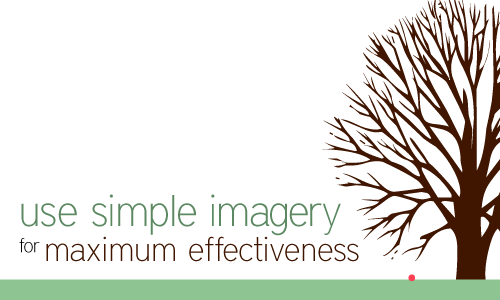
Imagism / Imagist. The Imagists were a group of poets who were influenced by Ezra Pound, who in turn had been influenced by the French Symbolist poets, Japanese haiku, and the writings of the poet and critic T. E. Hulme (1883-1917). The Imagist movement, which originated in London and was prominent in England and America from around 1912 to 1917, was crucial to the development of Modernist poetry. These poets aimed to free poetry from the conventions of the time by advocating a free choice of rhythm and subject matter, the diction of speech, and the presentation of meaning through the evocation of clear, precise, visual images.
Among the poets associated with Ezra Pound in this movement were Hilda Doolittle, Amy Lowell, and William Carlos Williams. Pound later associated himself with Vorticism, and Amy Lowell took over the leadership of the Imagist movement. Many English and American poets were influenced by Imagism, such as D. H. Lawrence, T. S. Eliot, Conrad Aiken, Marianne Moore, and Wallace Stevens.
Interior monologue is one particular kind of stream of consciousness writing. Int. monologue presents characters’ thought streams exclusively in the form of silent inner speech, as a stream of verbalized thoughts. Int. monologue represents characters speaking silently to themselves and quotes their inner speech, often without marking this with speech marks. The inner speech is presented in the first person and in the present tense and employs deictic words (“here”, “now”, “this” and so on).
Intertextuality - a term which can refer to a text’s inclusion of intertexts, but is also a concept introduced by philosopher and semiotician Julia Kristeva, and used in poststructuralist criticism, according to which a text is seen as not only connecting the author to the reader, but also as being connected to all other texts, past and present. Thus there is a limit to the extent to which an individual text can be said to be original or unique, and a limit to the extent to which an individual author can be said to be the originator of a text.
Irony
is an implied discrepancy between what is said and what is meant. Three kinds of irony:
1.Verbal irony is when an author says one thing and means something else. 2. Dramatic irony is when an audience perceives something that a character in the literature does not know. 3. Irony of situation is a discrepancy between the expected result and actual results.
A mode of expression, through words (verbal irony) or events (irony of situation), conveying a reality different from and usually opposite to appearance or expectation. A writer may say the opposite of what he means, create a reversal between expectation and its fulfillment, or give the audience knowledge that a character lacks, making the character's words have meaning to the audience not perceived by the character. In verbal irony, the writer's meaning or even his attitude may be different from what he says: "Why, no one would dare argue that there could be anything more important in choosing a college than its proximity to the beach." An example of situational irony would occur if a professional pickpocket had his own pocket picked just as he was in the act of picking someone else's pocket. The irony is generated by the surprise recognition by the audience of a reality in contrast with expectation or appearance, while another audience, victim, or character puts confidence in the appearance as reality (in this case, the pickpocket doesn't expect his own pocket to be picked). The surprise recognition by the audience often produces a comic effect, making irony often funny.
An example of dramatic irony (where the audience has knowledge that gives additional meaning to a character's words) would be when King Oedipus, who has unknowingly killed his father, says that he will banish his father's killer when he finds him.
is the most common and most efficient technique of the satirist, because it is an instrument of truth, provides wit and humor, and is usually at least obliquely critical, in that it deflates, scorns, or attacks.
irony A contrast or discrepancy between expectation and reality. (i.e See "Richard Cory" by Edwin Arlington Robinson)
irony - dramatic irony Occurs when the audience or the reader knows something important that a character in the play or story does not know (i.e., In Romeo and Juliet the audience knows, but Romeo does not, that when he finds Juliet in the tomb, she is drugged, not dead.)
irony - situational irony Occurs when there is a contradiction between what we expect to happen and what really does take place ( i.e., "The deep sea diver drowned in his bathtub.")
irony - tragic/cosmic irony Similar to dramatic irony. The incongruity between a situation developed in a Greek drama that is understood by the audience, but not the actors (i.e., Oedipus curses the murderer of Laios, not realizing that he is himself the murderer.)
irony - verbal irony Occurs when a writer or speaker says one thing but really means something completely different (i.e., "It is easy to stop smoking, I've done it many times.")
The iceberg technique became also known as “minimalism”. Hemingway believed that, like an iceberg, which only reveals one-eighth of itself above water, a story should also only reveal the most essential information and the reader completes the story with its own phantasy.
A writer should show "only the tip of what may be a huge conflict”.
The stylistics call it implication (the nonsaid is included) or underdetermination (less than the logical necessary informations is expressed).
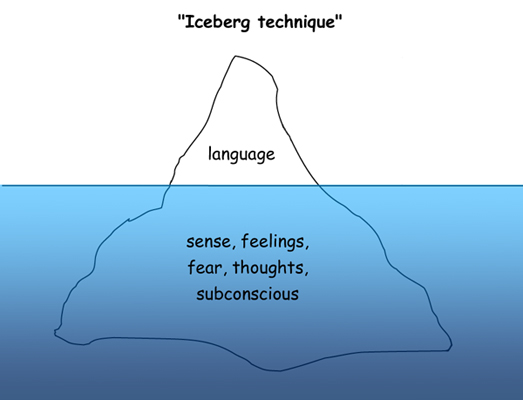
Ivory Tower: A derogatory term for a place, situation, or philosophical outlook that ignores or overlooks practical, worldly affairs. A French literary critic named Sainte-Beuve coined the phrase, and the term has become popular in American vernacular as well. Poets, artists, scholars, teachers, and other intellectuals are often accused of "living in an ivory tower"--i.e., hiding from the real world or putting all their effort into impractical ideals. The term presupposes that art and thinking are irrelevant in the real world and that such foci are unhelpful in achieving real happiness, understanding, or social change.
 The
Lost Generation
is a term used to describe a group of American writers who were
rebelling against what America had become by the 1900’s. At this
point in time, America had become a great place to, “go into some
area of business” (Crunden, 185). However, the Lost Generation
writers felt that America was not such a success story because the
country was devoid of a cosmopolitan culture. Their solution to this
issue was to pack up their bags and travel to Europe’s cosmopolitan
cultures, such as Paris and London. Here they expected to find
literary freedom and a cosmopolitan way of life.
The
Lost Generation
is a term used to describe a group of American writers who were
rebelling against what America had become by the 1900’s. At this
point in time, America had become a great place to, “go into some
area of business” (Crunden, 185). However, the Lost Generation
writers felt that America was not such a success story because the
country was devoid of a cosmopolitan culture. Their solution to this
issue was to pack up their bags and travel to Europe’s cosmopolitan
cultures, such as Paris and London. Here they expected to find
literary freedom and a cosmopolitan way of life.
The lost generation writers were above, or apart from, American society, not only in geographic terms, but also in their style of writing and subjects they chose to write about. Although they were unhappy with American culture, the writers were instrumental in changing their country's style of writing, from Victorian to modern.
Who was involved in it?
T.S.Eliot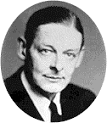 Ezra
Pound
Ezra
Pound
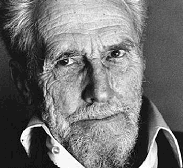
Gertrude Stein
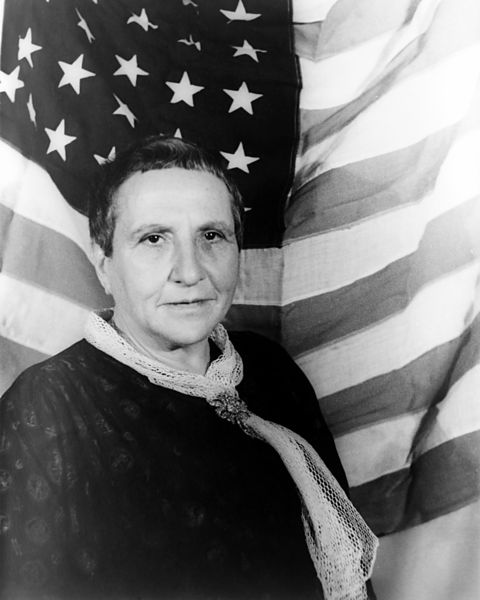 Ernest Hemingway
Ernest Hemingway
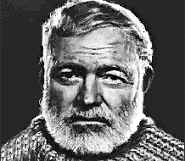
The term "lost generation" was coined by Gertrude Stein, a lost generation writer herself, after World War I. It was between the first and second World Wars, that these writers spent their time abroad. "In the 1930's, the forces of politics and war drove artists back to America."
 Metaphor
-
comparison of two unlike things using the verb "to be" and
not using like or as as in a simile.
A metaphor is a comparison. A metaphor establishes a relationship at
once; it leaves more to the imagination. It is a shortcut to the
meaning; it sets two unlike things side by side and makes us see the
likeness between them.
Metaphor
-
comparison of two unlike things using the verb "to be" and
not using like or as as in a simile.
A metaphor is a comparison. A metaphor establishes a relationship at
once; it leaves more to the imagination. It is a shortcut to the
meaning; it sets two unlike things side by side and makes us see the
likeness between them.
